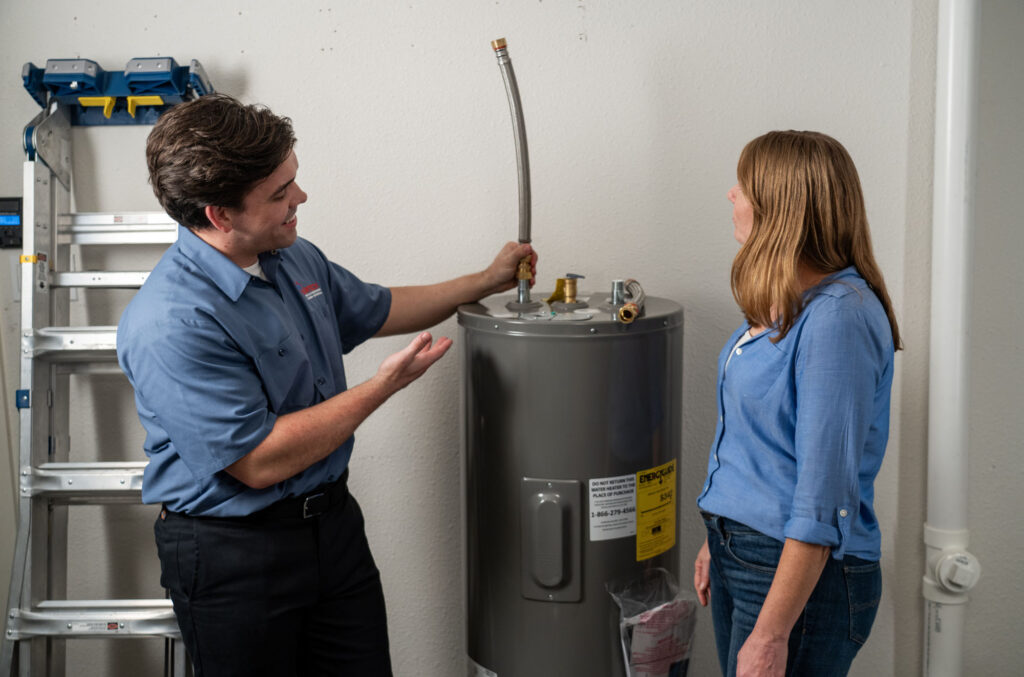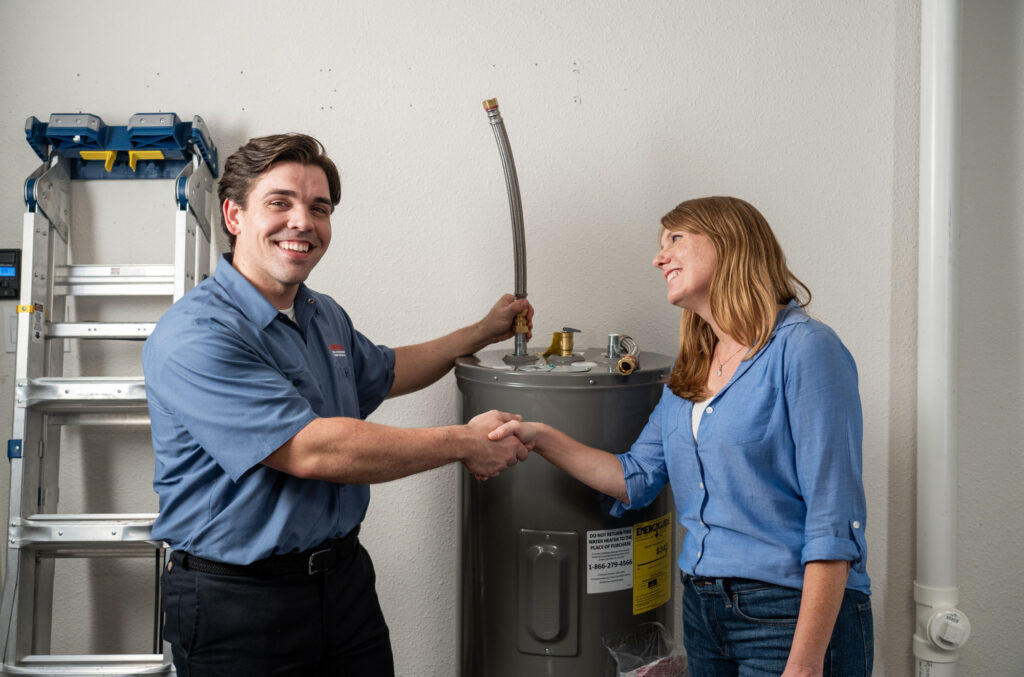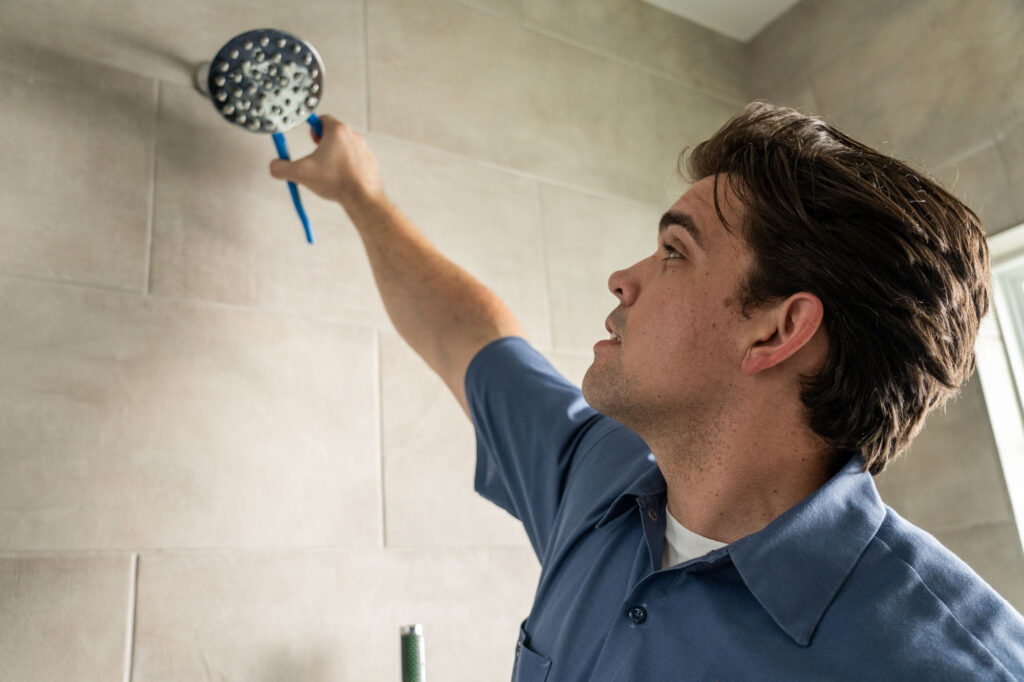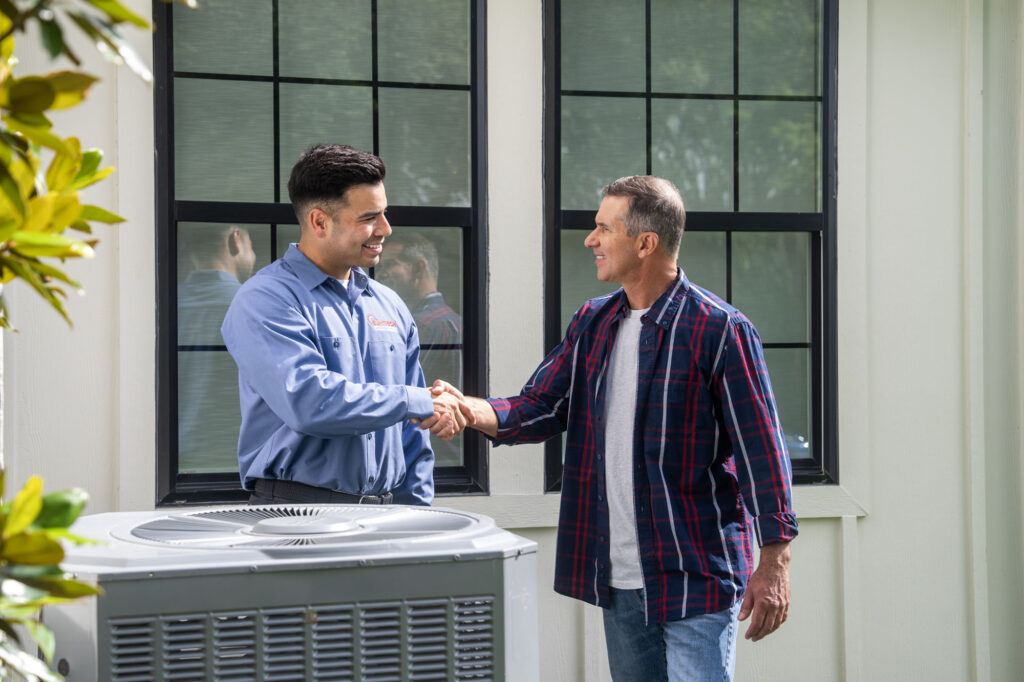Blog
Which Type of Water Heater Should You Buy for Your Home?

Hot water is essential for cooking, cleaning, and bathing. Just think about it—completing household chores like showering or washing dishes would be challenging without hot water. Unlike cold water, hot water removes grease, grime, and dirt. And let's be honest, a cold shower is nowhere near as enjoyable as a hot one.
A water heater is a crucial appliance that most households depend on. However, there isn’t a one-size-fits-all solution when it comes to water heaters. From traditional models to solar options, selecting the right water heater for your home can significantly enhance your comfort. Read on to learn how different water heaters can make a difference.
The best part is that Suntech Heat and Air offers water heater installation and repair services for all types of water heaters right here in Oklahoma City.
Traditional Tank Water Heaters
You’ve probably seen a traditional water heater before. These water heaters have a large tank that houses water. A traditional water heater is typically found in areas like basements and garages where there is less foot traffic. Also called a ‘storage tank’ water heater, traditional water heaters are the most popular type found in homes across America.
How They Work
Traditional water heaters store water in a 35 to 50-gallon tank.
Fuel-based water heaters utilize gas or propane to heat the water stored in their tanks. As the gases rise, the water is heated, which is then distributed to the fixtures in use. In contrast, electric water heaters rely on a heating element that warms the water only when it is needed.
Pros
Since traditional water heaters are so common, they have a lower upfront cost and are easy to install or replace. They also have a higher flow rate compared to other types of water heaters, which means you can use multiple fixtures around the house without worrying about a dip in temperature.
Cons
There’s a reason why traditional water heaters have remained tried and true across the country. However, they do have a few limitations. Traditional water heaters take up a lot of space, which means you need a lot of space. They can also cost more due to heat loss during the colder months.
Traditional water heaters should also be replaced after they pass the 10-year mark, which could be a con for some.
Best For
Traditional water heaters are ideal for small- to medium-sized households and businesses with moderate hot water usage.
Tankless (On-Demand) Water Heaters
If you have a large (and busy) household, a traditional water heater may struggle to meet your hot water demands. In contrast, a tankless water heater can keep up effectively. As the name suggests, tankless water heaters operate without a storage tank. These "on-demand" systems take up less space and heat water only when you need it.
How They Work
A tankless water heater heats water only when needed, which eliminates standby energy loss. It operates by directing a cold water line into the tankless heater. As the water flows through the heating element, it is heated at a rapid pace and then sent to the appropriate faucet. It’s an easy and cost-effective way to deliver hot water to your fixtures fast.
Pros
An unlimited hot water supply is one of the biggest advantages of a tankless water heater. It’s also energy efficient, saves space, and can generate long-term savings. Tankless water heaters can also last between 15 and 20 years compared to a traditional unit. Because they don’t have a large tank full of water they are also less likely to leak.
Cons
Tankless water heaters have a higher upfront cost than traditional water heaters. They also may need a more comprehensive setup and could require upgraded gas or electrical systems. This, of course, can add to the upfront cost.
Best For
A tankless water heater is an excellent choice for large households seeking long-term energy savings.
Heat Pump (Hybrid) Water Heaters
Heat pump water heaters do not generate heat directly. Instead, they utilize electricity to transfer heat from one location to another. This process differs from that of traditional electric water heaters. Heat pumps can also be retrofitted to work with a traditional water heater.
How They Work
A heat pump water heater uses heat from the surrounding air to heat water, making it highly energy-efficient. It works like a refrigerator but in reverse. These types of water heaters must be installed in areas with a consistent temperature of 40º–90ºF.
Pros
One of the best things about a heat pump water heater is that it saves a lot of energy—four times more than storage tank water heaters. Potential utility rebates and eco-friendliness are also benefits to consider when choosing a heat pump water heater.
Cons
As with any water heater, there will be cons. Heat pump water heaters have a higher upfront cost and must be placed in an area that has adequate ventilation. They also are not the best choice for people in colder climates since they use warm outdoor air.
Best For
Heat pump water heaters are ideal for homeowners living in warm climates who care about cost-effectiveness and energy efficiency.
Solar Water Heaters
Yes, solar water heaters are a thing. As you can imagine, solar water heaters convert sunlight into energy. And since solar energy doesn’t cost anything, they’re great for homeowners who want to save money on electricity bills.
How They Work
A solar water heater uses solar panels to collect and convert sunlight into energy to heat water. The panels are placed on the roof, which then receives energy from the sun. Solar water heaters can either be installed as an active system or a passive system.
Pros
The best part about using solar is that the sun’s rays are free to use, which is why people love solar energy. Using solar power is a great way to cut down on energy, reduce utility bills, and be environmentally conscious. Solar water heaters are also great for folks who do not have enough space for more conventional water heaters.
Cons
Solar water heaters come at a high upfront cost, and although cost savings indeed outweigh the initial cost, it could be tough to swing for budget-conscious homeowners. Solar water heaters also work better in sunnier areas and may need a backup heating source on sunless days.
Best For
Solar water heaters are best for homeowners who live in sunny areas and care about long-term cost savings.
Condensing Water Heaters
A little less common than conventional units, a condensing water heater uses condensation to heat water. It has an extra heat exchanger that recycles heat to continuously heat cold water, which is then delivered to your faucets.
How They Work
Condensing water heaters use gases from your home's heating system to preheat water, reducing energy waste. These water heaters are tankless and are much more energy-efficient than other conventional units, like storage tank water heaters.
Pros
Many people love condensing water heaters, thanks to their high efficiency. They’re also ideal for homes that use natural gas. Condensing water heaters can also help save on monthly bills.
Cons
Condensing water heaters have an extra heat exchanger, so be sure to factor in size and space when considering one. They also have a higher cost than other water heaters.
Best For
These water heaters are best fit for larger households that use natural gas.
Choosing the Right Water Heater for Your Home
Cost, household size, space—there’s a lot to consider when choosing a water heater. A traditional water heater is best suited for smaller homes with moderate hot water usage, whereas tankless water heaters are best for larger homes with higher hot water usage.
In the end, the best water heater for you depends on your life, your household, and how much hot water you use. If you need help deciding which water heater is right for you, call Suntech. We can even install your new water heater once you’ve made a decision.
Why Choose Suntech for Water Heater Installation?
Would you rather hire a new plumber or a team of licensed technicians who have been trusted for over 30 years? At Suntech, we’re been installing high-quality water heaters since 1986—and even though times have changed, our motto remains the same. “Do the best job we know how to do, each and every time.”
We’re proud to service the Oklahoma City area. If your hot water usage isn’t cutting it anymore, call us. Our crew can install all types of water heaters, from traditional to tankless. We offer competitive rates, promotions and specials, and financing options for homeowners on a budget.
Many of our customers choose to sign up for the Suntech Club, a worry-free membership program that helps save you money and keeps your systems running properly all year long. Become a member and enjoy the annual savings.
The Takeaway
Water heaters come in all shapes, sizes, and prices—which is great, but deciding on one can be hard. Luckily, Suntech has been in the water heater business for over three decades. Let us help you make the right choice—call us for installations, repairs, or even advice at XXX-XXX-XXXX or schedule an appointment online.
Have an emergency? Suntech offers emergency water heater service in Oklahoma City and surrounding areas.
Frequently Asked Questions
Which type of water heater is the most energy-efficient?
It depends on how efficiently your chosen water heater uses fuel. An electric heat pump water heater is more energy efficient than a traditional storage-tank water heater.
How long does a water heater typically last?
Different types of water heaters have different lifespans. Most traditional water heaters last about 11 years, whereas tankless heaters can last as long as 20 years. Factors like how often you use hot water and how often you maintain your water heater will play a role in its lifespan.
Is a tankless water heater worth the higher upfront cost?
Yes, it can be worth it. A tankless water heater is a great investment for many, especially if you use less than 41 gallons of hot water a day. In fact, you can achieve up to 34% more energy efficiency with a tankless water heater.




